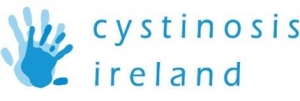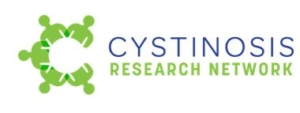CYSTINOSIS IRELAND AND CYSTINOSIS RESEARCH NETWORK JOIN FORCES TO CO-FUND IMPORTANT RESEARCH INTO THE MOLECULAR CAUSES OF INFERTILITY IN MALE CYSTINOSIS PATIENTS
Cystinosis Ireland and Cystinosis Research Network (CRN) are delighted to announce they will jointly fund research project entitled “Perturbations in the V-ATPase Pathway Drive Pathology in the Male Reproductive System in Cystinosis”, which will be led by Principal Investigator Professor Minnie Sarwal, Professor of Surgery, Division of Multi Organ Transplantation, University of California San Francisco (UCSF), USA and co-applicants, Dr James F. Smith, Associate Professor and Director Male Reproductive Health, Department of Urology, University of California, San Francisco and Dr Polina V Lishko, Associate Professor, Department of Molecular and Cell Biology, University of California Berkeley, USA.
Cystinosis is a very rare inherited genetic disease that causes the build-up of cystine, an amino acid is normally present in very small amounts in every single cell of a healthy person. The excess cystine forms sharp crystals that damage the body’s cells. Many of the body’s organs are affected by cystinosis including the kidneys and the eyes in particular. However in men, there can be an impact on fertility and the ability to produce sperm (azoospermia). Whereas in the past, the life expectancy of men living with cystinosis was short and their physical well being relatively poor, today there are an increasing proportion of men living with cystinosis who are well and who want to consider parenthood.
The research project is a total investment of €300,000 from Cystinosis Ireland and CRN (€150,000 each) over the next three years, and aims to study the molecular and cellular changes that can cause azoospermia in men with cystinosis. The research will be a first step towards developing an effective treatment that will give men living with cystinosis the opportunity to become fathers. The knowledge generated from this research will also improve our overall understanding of the disease and in particular of certain poorly understood cystinosis symptoms that appear to be caused by malfunctions other than the accumulation of cystine.
In selecting this proposal for co-funding, the Boards of Cystinosis Ireland and CRN agreed that this is a scientifically significant proposal focused on a very important and strategic research topic for cystinosis patients.
This project builds upon research and results generated from two previous projects co-funded by Cystinosis Ireland and the Irish Government’s health research funding agency (the HRB) – a project led by Professor Minnie Sarwal in UCSF, USA entitled “Targeting Autophagy in Nephropathic Cystinosis” and a project led by Professor Elena Levtchenko in UZ Leuven, Belgium entitled “Unravelling the mechanisms of azoospermia and potential future treatments in male cystinosis patients”.
This is the third time that Cystinosis Ireland and Cystinosis Research Network have collaborated to jointly fund important research into cystinosis. Recently, Cystinosis Ireland and the Cystinosis Research Network announced joint funding of €10,000 for a Seedcorn research project led by Dr Swastika Sur, a postdoctoral researcher in Professor Sarwal’s laboratory in UCSF. The objective of the co-funded Seedcorn research is to use gene editing technology to generate cystinotic cell lines from the male testes. These cell lines will be an important molecular/genetic resource for the newly funded Sarwal research project announced here and will also be an important resource for the research community generally.
What is Cystinosis?
Cystine is a naturally occurring amino acid that is present in very small amounts in every single cell of a healthy person. When large amounts of cystine accumulate, they form crystals which can cause damage to the cells. Healthy people have special mechanisms in each cell that remove cystine when it becomes too much. However, people with the very rare disease cystinosis have a defect in their genes which means that these mechanisms do not work. This results in a lifelong illness for persons with cystinosis where, without treatment, cystine accumulates to dangerous levels resulting in crystals forming in the cells causing damage to many organs and tissues. The kidneys and eyes are especially affected by damage caused by cystine crystals but other organs and tissues such as muscles, thyroid, pancreas, testes and central nervous system are also affected.
About Cystinosis Ireland
Cystinosis Ireland was founded in 2003 as an Irish registered charity, created by volunteers – family members and family friends of those living with cystinosis. Its purpose is dedicated to raising money to support research in cystinosis both in Ireland and all over the world. The charity also provides ongoing support and assistance to people living with cystinosis and in particular to the families of newly diagnosed children. In addition, Cystinosis Ireland also plays an important role in advocating for and providing support to those living with cystinosis on the island of Ireland.
Cystinosis Ireland is one of the main patient organisations in Europe driving research into this rare disease. Since its establishment, Cystinosis Ireland has supported research projects focused on all aspects of this disease to the value of €1.9 million. These research projects focus on the advancement of treatments for cystinosis, an acceleration of our basic understanding of the cystinosis disease mechanisms at molecular, cellular, organ and whole body levels and developing new disease models.
Cystinosis Ireland is a founding member of Cystinosis Network Europe. In April 2020, on behalf of CNE, Cystinosis Ireland hosted the first every Virtual International Cystinosis Conference for the global cystinosis community. The one day conference attracted an audience of more than 600 participants from 49 different countries in 20 time zones across the world. It was simultaneously translated into 7 different languages and featured presentations on a wide variety of clinical and research aspects of cystinosis from 16 world renowned clinicians, researchers and other healthcare professionals from USA, Canada, Ireland, Belgium, Germany, France, England and Scotland. In July 2020, Cystinosis Ireland also hosted the 6th Annual Dublin Cystinosis Workshop 2020 virtually. This scientific workshop attracted 49 scientific researchers, academics, clinicians and other professionals from 10 countries from New Zealand to USA to Europe who shared their latest research and developments in the field of cystinosis.
Through its partnerships, workshops and international conferences, Cystinosis Ireland shares research findings, discuss drug access programmes, review challenges being faced by the greater community and work towards finding a cure for this challenging rare disease.
About Cystinosis Research Network (CRN)
The CRN is an all-volunteer, non-profit organization dedicated to supporting and advocating research, providing family assistance and educating the public and medical communities about cystinosis. We are a private, non-profit 501(c)(3) corporation, Federal Tax ID 04-3323789.
CRN began with a vision in 1996. The vision of one family, which gradually grew to include hundreds more. As our network of families grew, we began to see the need to do more. Concerned for the future of those living with this disease, we realized that if we didn’t step up to the plate and set that agenda, no one else was going to. With the guidance and advice of our medical and scientific community the Cystinosis Research Network was launched. In the past two decades CRN has grown from a “kitchen table” rare disease group of parents to an internationally recognized rare disease advocacy organization which has funded millions of dollars in research, provided family support including sponsorship of 8 biennial family conferences around the U.S., and educated the public and professional communities about cystinosis via access to standards of care, brochures and sponsorship and exhibition in professional conferences around the world.
CRN has funded $4.5 million total in research grants and fellowships including:
- A cystinosis fellowship at the National Institutes of Health (NIH)
- Global research and education programs (U.S., Mexico, England, Scotland, Italy, Egypt, Belgium, France, to name a few)
- Research studies focusing on each aspect of cystinosis to form a comprehensive understanding of the disease.
The CRN’s vision is the acceleration of the discovery of a cure, development of improved treatments and enhancement of quality of life for those with cystinosis. Our commitment to our community lies in our tireless efforts to provide family assistance through facilitating several support groups as well as hosting a family conference every other year. At this conference we bring families and the medical community together in hopes to accelerate the accomplishment of our stated goals and objectives.
For more information, visit www.cystinosis.ie or www.cystinosis.org.



